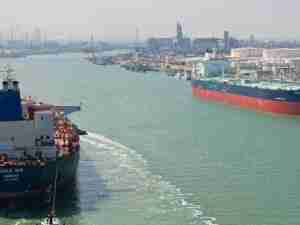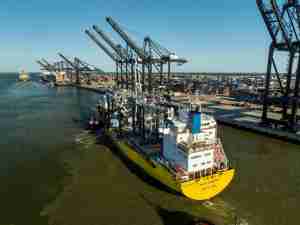- Extending the Port’s long run of success in reducing diesel particulate matter emissions
- Developing a greenhouse gas emissions reduction strategy
Port of Oakland task force to revamp clean air roadmap for 2018
posted by AJOT | Dec 18 2017 at 06:37 AM | Ports & Terminals
Head start on plan that ends in 2020, targets diesel/greenhouse gas emissions
Oakland, Calif. – A seminal document guiding Port of Oakland environmental policy since 2009 is about to be overhauled. The Port announced last night that it would produce an updated Maritime Air Quality Improvement Plan next fall. The plan’s purpose: reduce emissions from containerized cargo operations over the next decade.
Port officials said they‘d convene a task force this winter to revamp the existing plan that expires in 2020. They told the governing Board of Port Commissioners that the new plan would address two key objectives:










